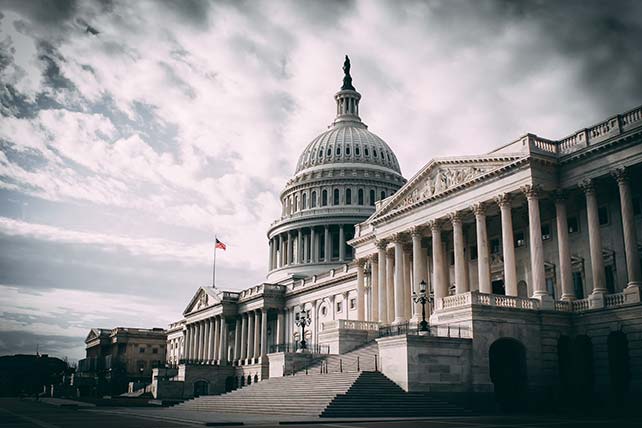WASHINGTON (BP)—The U.S. House of Representatives passed legislation Thursday (July 21) to protect contraceptive rights that opponents say will actually violate religious freedom and promote abortion.
The Democratic-controlled House voted 228-195 largely along party lines for the Right to Contraception Act. Eight Republicans joined all Democrats in the chamber to approve the proposal.
The House action was the latest effort by the majority party to codify into law U.S. Supreme Court precedents they contend are under threat after the justices overturned the 1973 Roe v. Wade decision that legalized abortion nationwide. The Right to Contraception Act is needed to protect the freedom to use contraceptives that was provided by high court rulings in the 1960s and 1970s, Democrats said.
The bill, however, specifically bars the application of the Religious Freedom Restoration Act (RFRA), a 1993 federal law that prohibits the government from substantially burdening the free exercise of religion. That provision drew a sharp rebuke from Brent Leatherwood, acting president of the Southern Baptist Ethics & Religious Liberty Commission.
“While from a distance this legislation may seem innocuous, a review of the details reveals it to be nothing less than an affront to religious liberty,” Leatherwood told Baptist Press in written remarks. “I realize some congressional leaders are lashing out in any number of ways following the Dobbs decision, but to create a carve-out of RFRA protections and a pathway for paving over consciences that have sincere religious objections is simply extreme.”
Leatherwood reiterated a request he has made multiple times since the Supreme Court reversed Roe in its June 24 ruling in Dobbs v. Jackson Women’s Health Organization.
“I would once again implore our policymakers to focus on ways to develop a culture of life where lives are saved, mothers are served and families are supported,” he said.
The Right to Contraception Act’s stated purposed is to “protect a person’s ability to access contraceptives and to engage in contraception, and to protect a health care provider’s ability to provide contraceptives, contraception, and information related to contraception.”
The bill’s foes, however, say the 14-page bill’s language goes beyond support for contraceptives and presents multiple problems. Among the concerns expressed by at least some opponents:
— The proposal would supersede RFRA and any federal or state law that is in conflict with the Right to Contraception Act, thereby removing conscience protections for health-care providers who object to providing certain kinds of contraceptives, including those that may have the ability to induce abortions.
— The measure would prohibit bans on government money for Planned Parenthood and other abortion providers that refuse to separate performance of the lethal procedure for preborn children from taxpayer-funded family planning facilities.
— Its expansive definition of contraceptives might annul restrictions on medical/chemical abortions.
RELATED: VP Kamala Harris: People of Faith Can Support Abortion Rights
“Far from being a bill that simply allows for access to contraception, this bill seeks to bail out the abortion industry, trample conscience rights, and require uninhibited access to dangerous chemical abortion drugs,” Marjorie Dannenfelser, president of Susan B. Anthony Pro-life America, said in a letter to House members.

